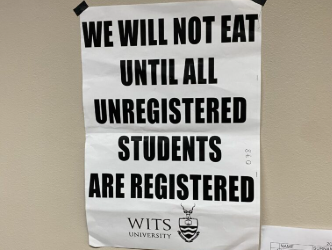Students raise concerns over proposed e-learning programme by universities
By: Carlifonia Dube
While the country has been on national lockdown all institutions of higher learning were urged to suspend all academic activities including graduations with immediate effect to minimise the risk of spreading coronavirus. The progression of this global viral epidemic has disrupted academic activities and therefore to cover the lost academic calender, some universities have proposed to pursue an e-learning programme.
However, some university students are concerned over the proposed programme as some of them have no access to data, and in some instances no learning resources such as smartphones and personal computers.
Tshwane University of technology BED Honors Degree graduate Makgoba Markus said: “The strategy to introduce e-learning programs came at the wrong time in our institutions. The idea is solid but we shouldn’t be pressured to implement it at this juncture. We have so many contextual factors that are facing students which are not unique to anyone. Our students are not ready for e-learning. However, it is a good initiative that can be implemented over time,” he said.
Makgoba further said that the initiation will be harsh, particularly on the first-year students as they are not familiar with the system therefore the institution should get tutors who would assist such students.
It is understood that some universities such as Wits, have put additional measures in place to address the challenges faced by students, such as the lack of access to devices and data by students. A contingency plan includes providing students with laptops and free data usage.
“I guess this program is relevant to our generation. Most young people prefer to use digital electronics to access school work,” said TUT Journalism graduate Seroba Malema.
However, some students are still against the proposed program since they believe it will not benefit students from poor backgrounds.
“It will be good for the rich who will afford to buy WIFI routers and have internet in their households. What about the people in the deep rural areas, who are struggling in terms of internet coverage and can’t afford laptops,” said TUT senior student, Admire Maluleke.
















